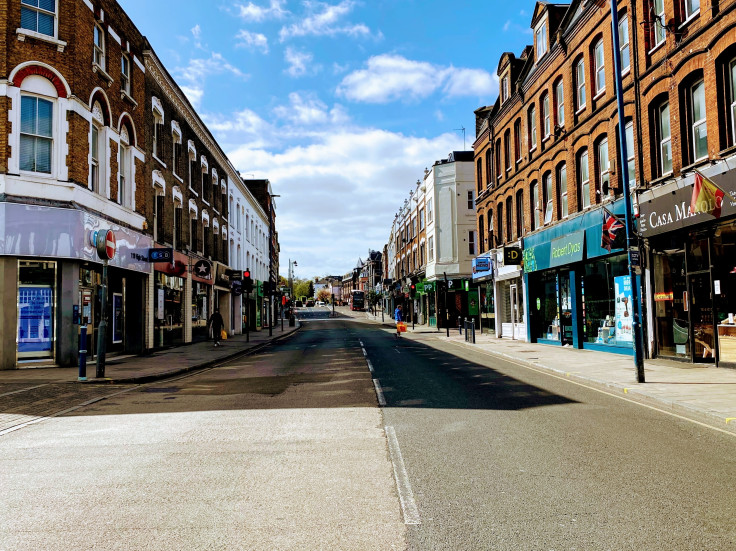Economic Challenges Mount as UK Retail Sales Slow Amid Rising Inflation and Global Uncertainties
The latest sales-monitor report from the British Retail Consortium has revealed a slowdown in retail sales growth in the UK for September. Despite a fall in inflation, the high cost of living continues to place pressure on households' budgets.

Retail sales growth in the United Kingdom slowed in September, reflecting the ongoing financial pressure on households due to the high cost of living. The latest sales-monitor report from the British Retail Consortium reveals that despite a fall in inflation, consumers are cautious with their spending.
According to the British Retail Consortium's report, total retail sales for the five weeks leading up to September 30 increased by 2.7 per cent compared to the previous month. This represents a notable deceleration from the 4.1 per cent growth witnessed in the preceding month.
Furthermore, the current growth rate is on par with the three-month average. Comparing year-on-year figures, September retail sales were up by 2.2 per cent, indicating a stagnation in growth over the year.
The report highlights a stark divide between food and non-food sales. Food sales surged by 7.4 per cent over the three months leading up to September, illustrating that consumers prioritise essential spending.
In contrast, non-food sales experienced a decline of 1.2 per cent, with big-ticket items like furniture and electrical appliances underperforming.
This underperformance is attributed to consumers curtailing their spending amidst rising costs of housing, rentals, and fuel. Additionally, the unusually warm weather in September deterred the sales of autumnal clothing, knitwear, and coats, which were expected to pick up during the season.
Helen Dickinson, Chief Executive of the British Retail Consortium, commented on these findings, underlining the financial challenges facing both consumers and retailers. She also drew attention to the growing divide within the retail sector, with strong performers and weaker entities experiencing different levels of success.
The 'Golden Quarter' Challenges
As the holiday season approaches, retailers are gearing up for the 'Golden Quarter,' which traditionally involves a surge in consumer spending. However, the competitive landscape is fierce, and consumers are expected to seek out the best deals, with pricing playing a pivotal role in their purchasing decisions.
Paul Martin, Head of Retail at KPMG U.K., emphasised the importance of this year's 'Golden Quarter,' stating that for some retailers, it could determine their future. In light of this, retailers are likely to introduce promotions and discounts earlier than usual to attract cost-conscious consumers.
The UK's economic challenges extend beyond the retail sector. Falling growth, rising inflation, and geopolitical uncertainties have raised concerns. These issues are intricately connected, creating a complex economic landscape.
UK inflation, while slowing to 6.7 per cent in August, remains well above the Bank of England's 2 per cent target. The Bank of England recently paused its series of interest rate hikes but has not ruled out further adjustments in the coming months. Some economists worry about the potential for a new wave of inflation triggered by global events, such as geopolitical tensions.
The UK's energy sector has also been a source of economic stress. Gas prices surged to their highest level in four months after the closure of one of Israel's largest gas fields in the Mediterranean Sea. This closure resulted from security concerns related to the conflict involving Hamas. The increase in gas prices has a cascading effect on various industries and household expenses, adding to the financial burden on consumers.
The Bank of England's Financial Policy Committee expressed concerns about overvalued risky assets, warning that a correction in prices could occur if economic growth falters. This reflects the broader unease about the stability of the financial markets in the face of ongoing uncertainties.
The International Monetary Fund (IMF) provided a global perspective on the economic challenges faced by the UK. The IMF predicts that the UK will have the weakest economic growth among G7 countries in the coming year. Despite a marginal upgrade in its GDP growth prediction for the current year, the UK's growth is expected to be only 0.5 per cent, making it the second weakest performer in the G7, trailing only behind Germany.
The IMF also downgraded its forecasts for the UK's economic growth next year, reducing the predicted growth rate to 0.6 per cent. This would place the UK at the bottom of the G7 list for economic growth in 2024.
One of the key drivers behind these economic challenges is the impact of higher interest rates. While interest rates are rising in various parts of the world, they are making it more difficult for households and businesses in advanced economies, including the UK, to service and refinance their debts. The IMF report also singles out China's property sector, highlighting significant downside risks.
The IMF's forecasts for the UK indicate that consumer price index inflation will reach 7.7 per cent in the current year before slowing to 3.7 per cent in the following year.
Additionally, the persistence of high inflation rates has been a major concern for policymakers, as it erodes the purchasing power of consumers and contributes to overall economic uncertainty.
© Copyright IBTimes 2024. All rights reserved.






